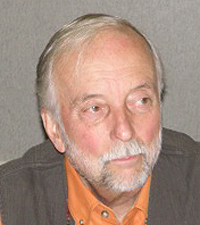
David Hufford, Ph.D., is Senior Fellow in Spirituality at the Samueli Institute in Alexandria, Virginia. In 2007, after 33 years on the faculty of Penn State College of Medicine, Hufford retired from his position as University Professor and Chair of Medical Humanities, and Professor of Neural & Behavioral Science, and Family & Community Medicine. He is now University Professor Emeritus of Humanities and Psychiatry at Penn State, and Adjunct Professor of Religious Studies at the University of Pennsylvania. Hufford's publications have primarily been concerned with spiritual belief and experience, and spirituality and health. His book The Terror That Comes in the Night, which reports his research on beliefs about spiritual evil found all over the world and their relationship to sleep paralysis, was recently translated into Japanese and Korean. Hufford is a founding member of the Editorial Boards of several journals including the the new journals Spirituality in Clinical Practice, and Explore: The Journal of Science and Healing, and a founding member of the Cancer Advisory Panel on Complementary and Alternative Medicine at the National Caner Institute (NIH, Bethesda). Hufford's current research is focused on extraordinary spiritual experiences.
In this second part we ask "the epistemic/ontological question": in studying these experiences, how far should we be concerned with the ontology? Would to do so be an abandonment of the scientific materialism which underpins the discipline, and therefore a slide back into theology? Or can there be a bigger model of materialism - a "complicated materialism", to use Ann Taves' expression - in which these phenomena might be suitably explicable?
In October 2013, a four day international conference was held at the Esalen Institute in Big Sur, California, on the theme of ‘Anthropology and the Paranormal’. This special two part episode explores some aspects of the sometimes fraught relationship between "paranormal" events and beliefs (The World Religions")...
This work is licensed under a Creative Commons Attribution- NonCommercial- NoDerivs 3.0 Unported License.
The views expressed in podcasts, features and responses are the views of the individual contributors, and do not necessarily reflect the views of The Religious Studies Project or our sponsors. The Religious Studies Project is produced by the Religious Studies Project Association (SCIO), a Scottish Charitable Incorporated Organisation (charity number SC047750).